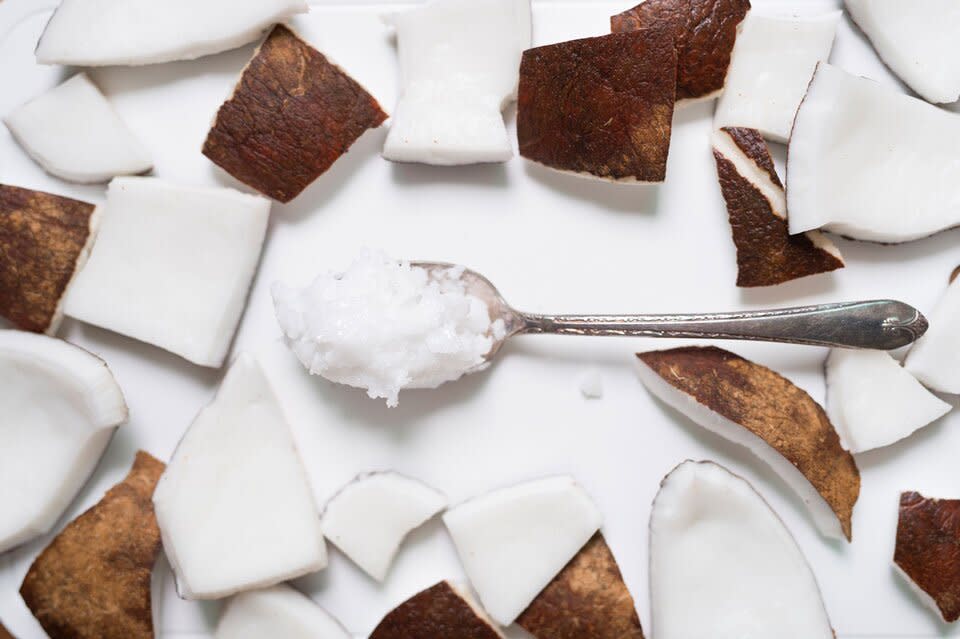Confused by Coconut Oil: Is it Good or Bad for Your Health? Here's What the Science Says

Seems like everyone is talking about coconut oil-and how it's no longer amazing for you and doesn't deserve its healthy halo-because of a new American Heart Association (AHA) advisory report. But was it ever really super-healthy, and did the AHA ever say so? Not really. So what's all the fuss about?
Related: The New Fat Revolution: Are All Fats Really Healthy?
Coconut oil became really trendy in recent years. People add it to everything from eggs and coffee to cookies and salad dressing. Despite health blogs and cookbooks (from people without nutrition degrees) promoting coconut oil, no scientific literature has ever come out and said that coconut is the miracle oil people claim it to be.
On the other hand, the AHA has taken a tough stance on saturated fat for a long time. They recommend that no more than 5 to 6 percent of total calories come from saturated fat-which means they would never be big fans of coconut oil. The Dietary Guidelines for Americans recommend limiting saturated fat to less than 10 percent of total calories.
Here's the real deal with coconut oil.
1. It is REALLY high in saturated fat.
Coconut oil contains 82 percent saturated fat, or 11 grams saturated fat per tablespoon. Compare that to butter, which is only 51 percent saturated fat (7 grams per tablespoon).
2. Saturated fat isn't as bad for us as we used to think.
Limiting saturated fat and replacing it with unsaturated fat is beneficial for lowering cardiovascular disease risk. If you don't have heart disease, saturated fat isn't as bad for you as we used to think. However, lots of other oils have been shown to be beneficial to your health, such as olive oil and canola oil and omega-3s from fatty fish.
3. Coconut oil has different types of saturated fats.
Coconut's main saturated fatty acid is lauric acid, a medium-chain triglyceride-and research suggests that while it raises unhealthful LDL cholesterol, it also boosts beneficial HDL cholesterol. AHA's new report states that the HDL benefit doesn't affect heart disease risk and so we should only count the LDL uptick as a negative for coconut oil.
4. We eat foods, not nutrients.
Finally, and this is the big one here: we eat food and, thus our focus should be on food, not necessarily single nutrients. EatingWell's motto is "where good taste meets good health." You'll find that in certain recipes where coconut oil enhances the flavor and really makes the dish.
Bottom Line:
For the most part, if you focus on eating more whole foods-veggies, fruits, whole grains, beans, healthy proteins and oils-your overall diet will be in pretty good shape. Choose healthy fats more often, like olive oil, canola oil, nuts, avocados and fatty fish like salmon. Limit saturated fat (including coconut oil) in your diet if you have risk of heart disease, and chat with your doctor or a registered dietitian to figure out what's best for you.

